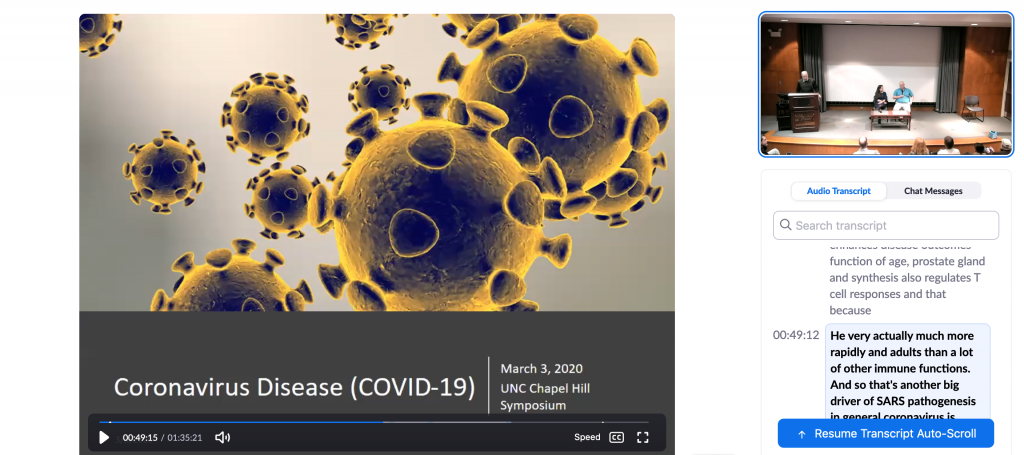Coronavirus Information Portal
Our Faculty Experts
- Anatomy of a New Virus (Medscape)
- How many are now eligible to get COVID vaccine in NC? There’s now a dashboard for that (The News & Observer)
- North Carolina Policy Collaboratory distributes $29 million for COVID-19 research
- Coronavirus Affects Everyone: The Gillings School Responds
Select a faculty expert below to read articles related to the COVID-19 pandemic.
Ralph Baric, PhD, William R. Kenan, Jr. Distinguished Professor of Epidemiology
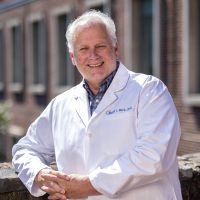
Dr. Baric
Dr. Baric conducts research in emerging infections, virus pathogenesis, drug and vaccine development. He has presented at numerous National Academy of Science meetings as well as various institutes under the National Institutes of Health organization. With more than thirty patents addressing critical advances in coronavirus research and other drug development, he has represented United States researchers at the Royal Academy of Sciences and Chinese Academy of Sciences.
Dr. Baric in the news:
- Two more coronaviruses can infect people, studies suggest (Science)
- Science in Action [starts at 9:37] (BBC Sounds)
- Coronavirus family now a prime suspect in previous pandemics (The Irish Times)
- Evidence Builds That an Early Mutation Made the Pandemic Harder to Stop (The New York Times)
- COVID-19 deaths may double over the winter, UNC coronavirus expert warns (The News & Observer)
- Study: New Mutation Sped Up Spread of Coronavirus (WebMD)
- Do Covid–19 mutations matter? (BBC)
- Researcher: Mix of therapies attacks various problems caused by coronavirus (WRAL)
- Frontline COVID-19 scientists sound the alarm (NHK World-Japan)
- COVID-19: Battling the Resurgence (NHK World-Japan)
- UNC researcher: Too early to approve any coronavirus vaccine, plasma treatment still uncertain (WRAL)
- Here’s how Triangle life science industry is working overtime to defeat COVID-19 (WRAL Tech Wire)
- UNC-Chapel Hill scores $433,000 grant to speed up COVID-19 research (WRAL Tech Wire)
- Coronavirus Researchers Tried for Years to Warn the World (Slate)
- Bats: The Mystery Behind Covid-19 (CNN Special Report) – go to CNN Special Report under Shows to find video
- Coronavirus Researchers Tried to Warn Us (The Atlantic)
- UNC’s Ralph Baric has long been a leader in virus research. Now, the world is listening. (The News & Observer)
- Meet ‘The Coronavirus Hunter’ Ralph Baric (The State of Things)
- Academic researchers investigate treatments amid urgent need (Association of American Medical Colleges)
- Coronavirus expert: Vaccines, antiviral treatments will be ‘quite effective’ (MSNBC)
- Epidemiologist: Remdesivir study is a ‘game-changer’ (CNN Tonight with Don Lemon)
- A Conversation With the Coronavirus Hunter (The People’s Pharmacy Podcast)
- Charlotte Talks: NC Prepares To Ease Coronavirus Restrictions. Are We Ready? (WFAE)
- ‘A game changer’ – Drug tested in UNC labs shows positive results for COVID-19 treatment (The News & Observer)
- UNC epidemiologist: NC needs 2 to 5 times more tests (WRAL)
- Three Ways to Make Coronavirus Drugs in a Hurry (Scientific American)
- Remdesivir, developed through a UNC-Chapel Hill partnership, proves effective against COVID-19 in NIAID human clinical trials (Gillings School News)
- The Quest for a Pandemic Pill (The New Yorker)
- Report: COVID-19 patients ‘recovering quickly’ on trial drug Remdesivir (WRAL)
- UNC researchers helped develop a drug to treat COVID-19. Now it’ll be tested on humans. (The News & Observer)
- COVID-19 Expert Reality Check (Global Helath NOW)
- UNC researchers test drug that could be used to treat COVID-19 (ABC 11 Eyewitness News)
- New drug shows promise for pneumonia caused by COVID-19, study finds (UPI)
- COVID-19 Epidemiology and Potential Treatments: Follow Up Interview (Henry Stewart Talks)
- The hunt for the next potential coronavirus animal host (National Geographic)
- A new antiviral drug heading into clinical trials offers hope for COVID-19 treatment (The Well)
- Carolina researchers playing a key role in the development of new COVID-19 treatment (UNC)
- If basic research ever mattered… (Higher Ed Works)
- UNC Lab May Offer Hope For COVID-19 Treatment (WUNC)
- Coronavirus Tally May Be Tip of Iceberg as Sick Go Untested (Bloomberg)
- Charlotte Talks: Your Questions About Coronavirus Answered (WFAE)
- Ralph Baric: On the Front Lines of Coronavirus for Three Decades (Carolina Alumni Review)
- Fighting coronavirus across the Triangle: How universities, private sector are fighting back (WRAL TechWire)
- An air-locked lab at UNC is leading research on cures for the coronavirus (The News and Observer)
- Scientists working on finding coronavirus vaccine (Fox 5 New York)
- The Coronavirus Hunter Is Racing for Answers in a Locked-Down Lab (Bloomberg Businessweek)
- Triangle’s university researchers work to stop spread of coronavirus (CBS 17)
- Coronavirus lurking in feces may reveal hidden risk of spread (liveMint)
- Wuhan Coronavirus In The US: How To Be Cautious Without Panicking (liveMint)
- Coronavirus expert Ralph Baric joins TWiV to explain the virology and epidemiology of the recent zoonotic outbreak spreading across China and overseas:
- UNC researchers have studied coronavirus for years, now working on possible treatment (WRAL)
- Local expert explains coronavirus outbreak in southeast Asia as CDC confirms first U.S. case (ABC 11 Eyewitness News)
- 10-year-old boy raises fears Wuhan Virus could spread undetected (Bloomberg Quint)
- Can an anti-HIV combination or other existing drugs outwit the new coronavirus? (Science Magazine)
- Viral outbreaks are here to stay. This is how humans will fight back (TIME)
- Confirmed: Infected coronavirus carriers now “shedding virus without symptoms” – Lance Study + Video (Before It’s News)
- It’s spread across borders. Now the new pneumonia-causing virus needs a name (STAT)
- There is a deadly coronavirus sweeping through southeast Asia: could it be the next Sars? (The Telegraph)
- Virus in China Is Part of a Growing Threat (Wall Street Journal)
- WHO Calls for Emergency Meeting as Chinese Virus Spreads to Health Care Workers (Scientific American)
- World on alert for potential spread of new SARS-like virus found in China (Science Magazine)
- One dead in Pneumonia Outbreak from New Coronavirus in China (The Scientist)
- Chinese researchers reveal draft genome of virus implicated in Wuhan pneumonia outbreak (Science Magazine)
- Jumping species—a mechanism for coronavirus persistence and survival (Current Opinion on Virology)
- Coronavirus Susceptibility to the Antiviral Remdesivir (GS-5734) Is Mediated by the Viral Polymerase and the Proofreading Exoribonuclease (mBio)
- Complement Activation Contributes to Severe Acute Respiratory Syndrome Coronavirus Pathogenesis (mBio)
Twitter: @Baric_Lab
Timothy Sheahan, PhD, Assistant Professor of Epidemiology

Dr. Sheahan
Dr. Sheahan examines the host-pathogen interface in order to discover new methods for viral control. For the past 12 years, Dr. Sheahan has been studying the molecular mechanisms of viral pathogenesis in hopes of discovering viral and/or host proteins to target for antiviral therapy. Dr. Sheahan works closely with Dr. Ralph Baric on coronavirus.
Dr. Sheahan in the news:
- How the New Antiviral Pills Help Thwart COVID (Scientific American)
- Merck’s experimental pill to treat covid-19 cuts risk of hospitalization and death in half, the pharmaceutical company reports (The Washington Post)
- Trials for a COVID-19 pill said to be promising (BBC Newshour)
- Drug companies working on pill treatments for COVID-19 (CNN Newsroom with Rosemary Church)
- A daily pill to treat Covid could be just months away, scientists say (NBC News)
- U.S. To Pour Billions Into Antiviral Treatments For Coronavirus, Other Viruses (NPR)
- Hunt for improved monoclonals against coronavirus gathers pace (Nature Biotechnology)
- The Coronavirus Is Never Going Away (The Atlantic)
- It’s summer, it’s hot and sunny, and COVID-19 didn’t go away. Why not? (The News & Observer)
- All Told: ‘There’s no end in sight to this’ (Washington Post Podcast)
- Scientists are drowning in COVID-19 papers. Can new tools keep them afloat? (Science Magazine)
- Here’s what you need to know about the FDA-approved COVID-19 drug being tested at UNC (The Daily Tar Heel)
- Hopes rise for coronavirus drug remdesivir (Nature)
- As the coronavirus spreads, a drug that once raised the world’s hopes is given a second shot (STAT)
- Coronavirus Investigated: Antivirals (Science Magazine video)
- What to Know About Chloroquine and Other ‘Promising’ Coronavirus Treatments (SELF Magazine)
- Inside the High Stakes New Life of a Coronavirus Specialist (GQ)
- New Coronavirus Drug Shows Promise in Animal Tests (Scientific American)
- Possible coronavirus antiviral treatment developed by UNC Chapel Hill scientists heads to clinical trials (Fox News)
- UNC Researchers Find Oral Pill That Might Block COVID-19 (INDY Week)
- UNC researchers finding success with new coronavirus drugs (WNCN)
- Promising Drug On The Horizon For COVID-19 (NPR)
- A new antiviral drug heading into clinical trials offers hope for COVID-19 treatment (EurekAlert!)
- U.S. Coronavirus Cases Top 14,000 As More Americans Get Tested (Here & Now)
- In Pursuit: Coronavirus Drug Shows Promise at UNC (UNC Research)
- Coronavirus: Facts Not Fear (WRAL)
- Your coronavirus questions answered (UNC-TV)
- Repurposed drugs may help scientists fight the new coronavirus (ScienceNews)
- Coronavirus is hard on older people — and scientists aren’t sure why (NBC News)
- Hopes rise over experimental drug’s effectiveness against coronavirus (The Guardian)
- Inside a lab where scientists are working urgently to fight the coronavirus outbreak (Washington Post)
- Baseless Conspiracy Theories Claim New Coronavirus Was Bioengineered (FactCheck)
- Treating the coronavirus: improvising now, but with real hope on the horizon (CBC)
- Doctors trial Ebola and Aids drugs in scramble to fight disease (Independent)
- What will it take to stop the coronavirus? (Gulf News)
- Scientists are already working on cures for coronavirus (BNN Bloomberg)
- Coronavirus isn’t work panicking over in the U.S., but wash your hands (Romper)
- Rapid global response to the new coronavirus shows progress made since SARS (The Verge)
- The Wuhan Coronavirus is spreading fast. Will doctors be able to find a treatment before the outbreak ends? (TIME)
- The U.S. has its first case of the new Wuhan coronavirus (iCrowdNewswire)
- Emerging coronaviruses have epidemic potential (Nature Microbiology)
- Preparing for future pandemics, today with broad-spectrum antivirals (BBC News)
- BBC News Your Questions Answered: Coronavirus (BBC News)
- Is regulation preventing the development of therapeutics that may prevent future coronavirus pandemics? (Future Virology)
- Fighting Emerging Diseases at UNC:
Twitter: @timothysheahan
Lisa Gralinski, PhD, Assistant Professor of Epidemiology
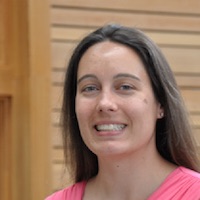
Dr. Gralinksi
Dr. Gralinski studies coronavirus pathogenesis. Her work focuses on identifying susceptibility alleles that regulate SARS coronavirus disease mechanisms and immunity. She is particularly interested in the role of human genetics in shaping the immune response following infection and leading to complications, like acute respiratory distress. Dr. Gralinski works closely with Dr. Ralph Baric on coronavirus.
Dr. Gralinski in the news:
- How Long Does Omicron Take to Make You Sick? (The Atlantic)
- 7 Things to Know About the Delta Variant (AARP)
- New data shows young, healthy adults dying more often from COVID in Mecklenburg (The Charlotte Observer)
- UNC expert answers questions about new strain of coronavirus (WRAL)
- How Science Beat the Virus. And what it lost in the process (The Atlantic)
- TWiV 674: In the company of coronaviruses with Lisa Gralinski (This Week in Virology)
- North Carolina COVID-19 cases surpass 100,000. Experts say it’s just the beginning (The News & Observer)
- NC virus testing started slow, pace gradually catching up to national average (WBTV)
- Some COVID-19 Restrictions Are Being Lifted. But Is It Safe to Travel? (TIME)
- Coronavirus Cases Likely to Surge in Protests’ Wake (U.S. News & World Report)
- NC limits information on meatpacking plants’ COVID-19 outbreak as case numbers grow (The News & Observer)
- Our Pandemic Summer: A Statewide Special (WUNC)
- UNC coronavirus expert: It’s not safe to reopen (The Charlotte Observer)
- Why the Coronavirus Is So Confusing: A guide to making sense of a problem that is now too big for any one person to fully comprehend (The Atlantic)
- What you should know about experimental therapies for coronavirus (National Geographic)
- UNC epidemiologist discusses virus treatment development efforts, need to continue ‘social distancing’ (WRAL)
- Some Coronavirus Researchers are Running Low on Masks (The Scientist)
- Why the Coronavirus Has Been So Successful (The Atlantic)
- Coronavirus: Facts, not fear (starts at 14:22) (WRAL)
- Curing Coronavirus: Inside a Secret Lab That’s Working on a COVID-19 Vaccine (Tying It Together with Tim Boyum podcast)
- Why Some COVID-19 Cases Are Worse than Others (The Scientist)
- As coronavirus continues to spread, CATS workers want better protection (WSOC TV)
- Banning Travelers From China Won’t Stop Virus, Experts Warn (VOA News)
- Wuhan’s new hospitals are sorely needed, but they won’t stop the spread of disease (Popular Science)
- Return of the Coronavirus: 2019-nCoV (Commentary)
- Experts: nCoV spread in China’s cities could trigger global epidemic (University of Minnesota – Center for Infectious Disease Research and Policy)
- Combination Attenuation Offers Strategy for Live Attenuated Coronavirus Vaccines (Journal of Virology)
Twitter: @LisaGralinski
David R. Martinez, PhD, Postdoctoral Fellow, Department of Epidemiology
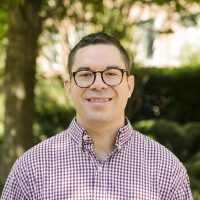
Dr. Martinez
Dr. Martinez is a viral immunologist with an expertise in immunity to viral pathogens of global importance including HIV, dengue, and SARS-CoV-2. As a postdoctoral scholar in Dr. Ralph Baric’s lab, he focus on studying host antibody responses to dengue virus and SARS-CoV-2. As a result of the explosive SARS-CoV-2 outbreak in Wuhan China, Dr. Martinez immediately shifted his focus to studying host immune responses to coronaviruses, including SARS-CoV-2. In addition to being involved in the pre-clinical development of the Johnson and Johnson and Moderna SARS-CoV-2 vaccines, as well as the Eli Lilly and AstraZeneca monoclonal antibody therapies, his postdoctoral work focused on characterizing neutralizing antibody responses to SARS-CoV-2 infection and vaccination.
Dr. Martinez in the news:
- The world won’t be able to boost its way out of the coronavirus pandemic (Politico)
- Our Relationship With COVID Vaccines Is Just Getting Started (The Atlantic)
- First lab results show omicron has ‘much more extensive escape’ from antibodies than previous variants (The Washington Post)
- What J&J Can Still Teach Us (The Atlantic)
- Health Team Scientists at UNC, Duke identify new antibody for COVID-19 and other variants (WRAL)
- We’re Asking the Impossible of Vaccines (The Atlantic)
- Vaccinations can stop delta variant (The Well)
- UNC researchers develop universal COVID vaccine with the potential to protect against variants (The Daily Tar Heel)
- The Struggle to Convince Loved Ones to Get Vaccine—and How Some Did It (Newsweek)
- ‘Universal Vaccine’ Could Protect Against Future Coronaviruses (Howard Hughes Medical Institute)
- One Vaccine to Rule Them All (The Atlantic)
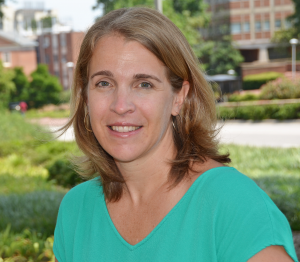
Dr. Pettifor
Audrey Pettifor, PhD, Professor of Epidemiology
Dr. Audrey Pettifor is an epidemiologist whose research focuses on sexual behavior and determinants of HIV/STI infection in sub-Saharan Africa. Her goal is to identify modifiable risk factors and develop novel interventions to prevent new HIV infections—particularly among adolescents and young women. Since spring 2020, Dr. Pettifor has been advising the UNC administration on various aspects of COVID-19 and the return to campus.
Dr. Pettifor in the news:
- On the Record: What’s next in the coronavirus pandemic? (WRAL)
- Carolina to lead $15 million statewide COVID-19 surveillance program funded by NC Policy Collaboratory (SPH News)
- UNC researcher looking for college students hesitant about coronavirus vaccine for nationwide study (WRAL)
- What colleges should know about herd immunity (Higher Ed Dive)
- ReCCAP: Return to Campus COVID-19 Assessment for UNC Research Personnel (UNC Friday Morning Conference)
- Plans for UNC student vaccinations commence, though rollout seems months away (The Daily Tar Heel)
- As the Pandemic Worsens, Colleges Prepare to Test Their Spring Plans (The Chronicle of Higher Education)
Allison Aiello, PhD, Professor of Epidemiology

Dr. Aiello
Dr. Aiello’s research examines social, behavioral and biological factors that have an impact on infectious diseases and health conditions throughout life. She explores the role of social determinants – e.g., education, race/ethnicity, socioeconomic status, neighborhood-level stressors, and workplace or school policies – on health outcomes. In particular, Dr. Aiello’s research examines antibiotic use, vaccination rates, infectious disease transmission, diagnostic testing, and infectious disease prevention.
Dr. Aiello in the news:
- UNC researchers discuss pitfalls of convenience samples for COVID-19 antibody testing (UNC)
- UNC Gillings School partners with state, local agencies to study COVID-19 cases with mild or no symptoms (UNC)
- Are Antibacterial Soaps More Effective Than Regular Soap? (Medium)
- Should Healthy People Wear Masks to Prevent Coronavirus? The Answer May Be Changing (Time Magazine)
- Digital disease surveillance: Tracking a pandemic (knowable Magazine)
- What Should You Do About Your Babysitter During Coronavirus? (New York Times)
- Cruises know how to clean after an illness outbreak. But what does a coronavirus cleanup look like? (The Washington Post)
- Coronaviruses in the university setting:
- Human coronaviruses and other respiratory infections in young adults on a university campus: Prevalence, symptoms, and shedding (Influenza and Other Respiratory Viruses)
- Hand Hygiene:
- Hand hygiene and risk of influenza virus infections in the community: a systematic review and meta-analysis (Epidemiology and Infection)
- The association between handwashing practices and illness symptoms among college students living in a university dormitory (American Journal of Infection Control)
- Effect of hand hygiene on infectious disease risk in the community setting: a meta-analysis (American Journal of Public Health)
- Face masks:
- Facemasks, hand hygiene, and influenza among young adults: a randomized intervention trial (PLoS One)
- Face masks to prevent transmission of influenza virus: a systematic review (Epidemiology and Infection)
- Mask use, hand hygiene, and seasonal influenza-like illness among young adults: a randomized intervention trial (The Journal of Infectious Diseases)
- Isolation:
- The effect of reactive school closure on community influenza-like illness counts in the state of Michigan during the 2009 H1N1 pandemic (Clinical Infectious Diseases)
- Design and methods of a social network isolation study for reducing respiratory infection transmission: The eX-FLU cluster randomized trial (Epidemics)
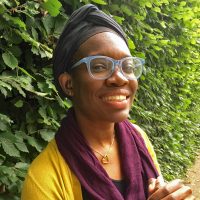
Dr. Planey
Arrianna Planey, PhD, Assistant Professor of Health Policy and Management
Dr. Planey is a Faculty Fellow in the Cecil G. Sheps Center for Health Services Research. She is a health/medical geographer whose expertise includes conceptualizing and measuring health care access, health workforce issues, and chronic illnesses. Her research and teaching focuses include the application of spatial analytic/statistical/epidemiologic methods to study interactions between health(care) policies, healthcare access and utilization, and underlying, population-level health inequities. Her goal is to identify points of intervention at structural- and system-levels. Dr. Planey’s ongoing research includes collaborative studies of birth outcomes (preterm birth and low birth weight) among Black immigrants in segregated neighborhoods, travel burdens borne by rural cancer patients, and the racially disparate effects of rural hospital closures on acute care access.
Dr. Planey in the news and research publications:
- Planey pinpoints health disparities in COVID-19 testing and workers with disabilities (SPH News)
- Racial, Ethnic, and Geographic Disparities in Novel Coronavirus (Severe Acute Respiratory Syndrome Coronavirus 2) Test Positivity in North Carolina (Open Forum Infectious Diseases)
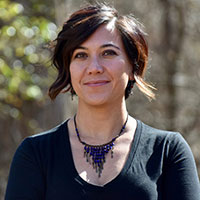
Dr. Palmquist
Aunchalee Palmquist, PhD, Assistant Professor of Maternal and Child Health
Dr. Palmquist studies infant and young child feeding in emergencies and other situations of extreme adversity. She is the lead for the Carolina Global Breastfeeding Institute’s (CGBI) Lactation and Infant Feeding in Emergencies (L.I.F.E.)™ Initiative. She serves as a CGBI representative on the WHO/UNICEF Global Breastfeeding Collective, the Emergency Nutrition Network IFE Core Group, and the CORE group Humanitarian-Development Task Force. Dr. Palmquist is spearheading efforts to strengthen the implementation of recommended infant feeding practices and COVID-19 through the new United States Breastfeeding Committee (USBC) COVID-19 Infant & Young Child Feeding Constellation.
Dr. Palmquist in the news and research publications:
- Sorting Through the Science on Breast Milk and Covid-19 (Undark)
- COVID-19 human milk studies should continue without stopping breastfeeding, researchers say (theSource)
- Black Breastfeeding Is a Racial Equity Issue (Healthline Parenthood)
- Palmquist responds to COVID-19, advocates and supports best practices for infant and young child feeding during pandemic (UNC)
- Ready, Set, BABY Live Virtual Prenatal Breastfeeding Education for COVID-19 (Journal of Human Lactation)
- Policy (Contributor): North Carolina Pregnancy & Continuity of Care During COVID-19 Task Force Recommendations
- Policy (Contributor): USBC COVID-19 IYCF Constellation Joint Statement on Infant and Young Child Feeding in the Context of COVID-19
- The COVID ‐19 liquid gold rush: Critical perspectives of human milk and SARS‐CoV ‐2 infection (American Journal of Human Biology)
- Kids and COVID: Overview, Epidemiology, and Public Health Implications of the COVID-19 pandemic among the youngest of us (Building COVID-19 Research Collaborations Webinar Series)
- Separating mothers with COVID-19 from their newborns does more harm than good (Medical Xpress)
- Maintaining safety and service provision in human milk banking: a call to action in response to the COVID-19 pandemic (Lance Child & Adolescent Health)
- When separation is not the answer: Breastfeeding mothers and infants affected by COVID-19 (Mother & Child Nutrition)
- COVID-19: Infant Feeding during the Postpartum Period webinar hosted by the California Breastfeeding Coalition
- Gender, Displacement, and Infant and Young Child Feeding in Emergencies (International Handbook on Gender and Demographic Processes)
Dr. Palmquist, as a CGBI representative on the ENN IFE Core Group Steering Committee, helped draft:
- UNICEF Infant and Young Child Feeding in the Context of COVID-19 brief, No.2 (v1) (March 30, 2020)
- Global Nutrition Cluster (GNC) Template for Joint Statement on Infant and Young Child Feeding in the Context of COVID (April 1, 2020) to be adapted by countries or nutrition clusters and to be issued at the national level.
Twitter: @AunPalmquist
David Jay Weber, MD, Professor of Epidemiology and Medicine
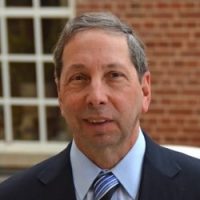
Dr. Weber
Dr. Weber serves as the medical director of hospital epidemiology (infection control), Associate Chief Medical Officer, UNC Hospitals, and as director of the UNC Health Care Anti – Infective Stewardship. Dr. Weber’s research focuses on hospital-associated (nosocomial) infections especially antibiotic-resistant pathogens, surveillance, disinfection and sterilization, nosocomial pneumonia, hand hygiene, and outbreak investigations. He is particularly interested in new and emerging diseases, and vaccine implementation.
Dr. Weber in the news:
- For the first time, most COVID deaths in Charlotte aren’t in nursing homes (The Charlotte Observer)
- Have I Been Cleaning All Wrong? (New York Times)
- ‘A very unusual time’: Board of Governors discussed system response to COVID-19 (The Daily Tar Heel)
- Coronavirus preparedness starts at the clinic level – expert urges clinicians to have proper equipment, masks available (MedPage Today)
- New and emerging infectious diseases (Ebola, Middle Eastern respiratory syndrome coronavirus, carbapenem-resistant Enterobacteriaceae, Candida auris): Focus on environmental survival and germicide susceptibility (American Journal of Infection Control)
Rachel Graham, PhD, Assistant Professor of Epidemiology

Dr. Graham
Dr. Graham examines emerging infectious diseases, specifically SARS and coronavirus. She uses basic science techniques to examine host receptors and disease transmission to identify potential candidates for epidemic surveillance and preventive measures against these deadly infectious diseases. Dr. Graham works closely with Dr. Ralph Baric on coronavirus.
Dr. Graham in the news:
- No, You Probably Shouldn’t Swab Your Own Throat for COVID Tests (Vice)
- Omicron vs. T cells: Why scientists are banking on the immune system’s ‘memory’ (NBC News)
- Do school fountains spread COVID? Why one NC district is giving students water bottles (The News & Observer)
- ‘Going to be joyful.’ Charlotte houses of worship ready spring COVID-style holidays. (The Charlotte Observer)
- Negative Test To Fly (WSOCTV.COM)
- The Most Common Coronavirus Vaccine Questions, Answered (HuffPost)
- No, mouthwash does not make kissing safer during the coronavirus pandemic (Insider)
- Covid-19 Positivity Rate Might Not Mean What You Think It Does (Wall Street Journal)
- The risk of catching COVID-19 in a hotel room is very low if it’s properly cleaned, experts say (Business Insider)
- Here’s what COVID-19 does to a child’s body (National Geographic)
- COVID-19 data often incomplete or unavailable, researchers say (Carolina Journal)
- Why Immunity to the Novel Coronavirus Is So Complicated (Smithsonian Magazine)
- What Scientists Know About Immunity to the Novel Coronavirus (Smithsonian Magazine)
- No, You Don’t Need To Disinfect Your Groceries. But Here’s How To Shop Safely (NPR)
- Coronavirus: How to stay safe during grocery store visits (Fox News)
- The coronavirus spares most kids. These theories may help explain why. (National Geographic)
- One graphic shows how long the coronavirus lives on surfaces like cardboard, plastic, and steel (Business Insider)
- You probably don’t need to worry about getting coronavirus from the packages you’re ordering, but here’s what you can do to be sure (Business Insider)
- Can I Get It Twice? Why Don’t Some People Have Symptoms? Experts Answer Our Big COVID-19 Questions. (Mother Jones)
- Advice From France To Avoid Ibuprofen For COVID-19 Leaves Experts Baffled (NPR)
- Novel coronavirus receptors show similarities to SARS-CoV, according to new analysis (Science Daily)
- Viral metagenomics, protein structure, and reverse genetics: key strategies for investigating coronaviruses (Virology)
Kimberly Powers, PhD, Associate Professor of Epidemiology

Dr. Powers
Dr. Powers uses epidemiological, statistical and mathematical modeling methods to study infectious disease transmission. Watch the seminar on Coronavirus Outbreak: Biology, Epidemiology and Public Health Response held on March 3 below (begin at 23:00 mark) to see her summary of current mathematical modeling efforts to understand novel coronavirus spread.
Dr. Powers in the news:
- UNC study: Teachers want more — testing, training, support, safety — before return to the classroom (WRAL)
- The Health 202: When will 2021 feel normal again? Here’s what eight experts predict. (The Washington Post)
- 10 Epidemiologists and Infectious Disease Experts On Whether They Are Sending Their Kids Back to School (TIME)
- Predicting a Pandemic (WUNC)
- Trump’s COVID Data Crunchers See Coronavirus Racing Down America’s Major Highways (Yahoo News)
- Is It Safe to Run in Groups Again? (Runner’s World)
- Alarming Rise in Virus Cases as States Roll Back Lockdowns (New York Times)
- From Camping To Dining Out: Here’s How Experts Rate The Risks Of 14 Summer Activities (NPR)
- Experts caution comparing virus outbreaks, reopening strategies between states (WRAL)
- Models that predict NC COVID-19 deaths are imperfect. Should we pay attention to them? (The News & Observer)
- Doctors and researchers worry about possible effects of reopening nursing homes (The News & Observer)
- Virus Survivors Could Suffer Severe Health Effects for Years (Bloomberg)
- Most States That Are Reopening Fail to Meet White House Guidelines (New York Times)
- White House Plan For Reopening States Leaves Testing Question Unanswered (NPR)
- How do we predict the future of COVID-19? (WRAL)
- Social distancing may be working: Researchers cut projected COVID-19 death toll in NC (The News & Observer)
- America’s most influential coronavirus model just revised its estimates downward. But not every model agrees (The Washington Post)
- Even with increased testing, predicting the spread of coronavirus remains a challenge (The News & Observer)
- Coronavirus cases in North Carolina could swell into the thousands by early April (The News & Observer)
Twitter: @kim_powers
Noel Brewer, PhD, Professor of Health Behavior

Dr. Brewer
Dr. Brewer’s research explores why people engage in vaccination and other health behaviors. He currently serves on WHO committees on vaccine acceptance and COVID-19 vaccine risk communication. Dr. Brewer has advised on vaccination for the National Academies of Science, Centers for Disease Control and Prevention, President’s Cancer Panel under two presidents, and National Vaccine Advisory Committee. Dr. Brewer was the inaugural chair of the National HPV Vaccination Roundtable. Dr. Brewer co-edited the FDA’s book, Communicating Risks and Benefits: An Evidence-Based User’s Guide.
Dr. Brewer in the news
- The Big Question This Thanksgiving: Are You Vaccinated? (New York Times)
- Vaccination in America Might Have Only One Tragic Path Forward (The Atlantic)
- As pandemic shifts, so does some Americans’ view of it (The Christian Science Monitor)
- Million-dollar lotteries fail to cut through vaccine apathy (Politico)
- The million-dollar jab and other giveaways reveal a desperate push to vaccinate America (The Washington Post)
- The Health 202: The United States is now beating the coronavirus on three key metrics (The Washington Post)
- Marketplace (NPR)
- How Wyoming became the most vaccine-hesitant state (ABC News)
- A Campaign to Get Needles in Arms (The Chronicle of Higher Education)
- 57% of Those Who Won’t Get COVID Vaccine Say They Generally Avoid Them: Poll (Newsweek)
- ‘Fear of missing out’ boosting global acceptance of Covid jab (The Guardian)
- Covid vaccine ads aim to influence without alienating people (The Guardian)
- North Carolina Gov. Roy Cooper receives COVID-19 vaccine (The News & Observer)
- Why Donald And Melania Trump’s Vaccination Just Got Controversial (The List)
- NC officials call Johnson & Johnson COVID vaccine a game-changer. When can you get it? (The News & Observer)
- Announcing the Lancet Commission on Vaccine Refusal, Acceptance, and Demand in the USA (The Lancet)
- How to persuade someone to take the COVID-19 vaccine (USA Today)
- What South Korea Can Teach Us About Vaccine Hesitancy (The New York Times)
- How South Korea’s Flu Vaccine Scare Offers Lessons for Other Nations (The New York Times)
- Inside the Mind of an Anti-vaxxer (The Atlantic)
- COVID vaccinations could use a nudge (Boston Globe)
- Covid-19 vaccines may cause mild side effects, experts say, stressing need for education, not alarm (Stat News)
- Headache, Fever And Muscle Aches Among Side Effects Of Coronavirus Vaccine In Clinical Trials, Doctors Say (CBS Pittsburgh)
- Houston Clinics Offering $2,000 For Those Willing to Test COVID-19 Vaccine (Newsweek)
- COVID-19 Vaccine Faces Challenge of Confidence (Voice of America)
- Officials gird for a war on vaccine misinformation (Science)
- Medical experts worried people won’t take vaccine if one is approved (Newsday)
Twitter: @noelTbrewer
Leah Devlin, DDS, Professor of the Practice

Dr. Devlin
Dr. Devlin has more than 30 years in public health practice in North Carolina including 10 years as the Wake County Health Director and 10 years as the State Health Director for North Carolina. She is helping the Office of NC Department of Health and Human Services Secretary Dr. Mandy Cohen with the public pandemic response.
Dr. Devlin in the news:
- COVID Uncovered: Explaining COVID-19 vaccine shortages (PBS)
- As a third COVID-19 vaccine shows promise, NC’s distribution plan takes shape (NC Policy Watch)
- NCDHHS Submits COVID-19 Vaccination Plan to CDC (NCDHHS)
- Pandemic Summit and NC Preparedness (WGHP Fox)

Dr. Turpin
Barbara J. Turpin, PhD, Professor and Chair of Environmental Sciences and Engineering
Dr. Turpin is an aerosol scientist who conducts research linking human exposures via airborne fine particles (aerosols) back to their sources in the indoor and outdoor environment, often through chemical and physical transformations. She is conducting research to understand the airborne spread of COVID-19 and is one of 239 signatories on a letter to the World Health Organization about the potential for airborne transmission of COVID-19. Dr. Turpin is a Past President of the American Association for Aerosol Research, and a Fellow of the American Association for the Advancement of Science, the American Geophysical Union and the American Association for Aerosol Research. She is a Professor and Chair of the UNC Gillings Department of Environmental Sciences and Engineering.
Dr. Turpin in the news:
- UNC Chapel Hill professors back new theory of COVID-19 spread (CBS17)
- COVID-19 may be airborne. Here’s what that could mean (The News & Observer)
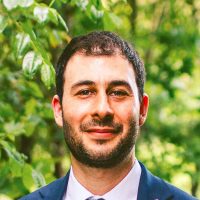
Dr. Fisher
Michael Fisher, PhD, Assistant Professor of Environmental Sciences and Engineering
Dr. Fisher develops, evaluates, and applies technologies and methods for addressing under-recognized health concerns in water and sanitation, both in the US and internationally. His research contributes to a greater understanding of the determinants of effective and beneficial water and sanitation service delivery, and to innovations and evidence that can be used to improve these services.
Dr. Fisher in the news:
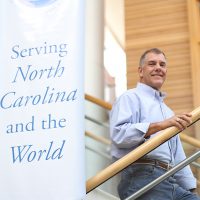
Mr. Gentry
Bill Gentry, MPA, Associate Professor of Health Policy and Management
Mr. Gentry, a disaster management expert, worked for the North Carolina Division of Emergency Management for more than 15 years before coming to UNC. He has joined both UNC and the Gillings School’s COVID-19 working groups and is supporting the University’s emergency operations center.
Mr. Gentry in the news:
- Stocking Up for the Coronavirus: What You Need (U.S. News & World Report)
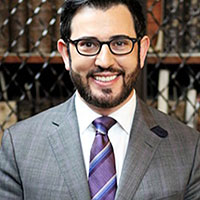
Dr. Meier
Benjamin Mason Meier, JD, LLM, PhD, Adjunct Associate Professor of Health Policy and Management
Dr. Meier is an Associate Professor in the Department of Public Policy and an Adjunct Associate Professor in the Department of Health Policy and Management. His interdisciplinary research—at the intersection of international law, public policy, and global health—examines human rights frameworks for global health policy. Advancing legal frameworks for public health, he is working closely as a consultant to international organizations, national governments, and non-governmental organizations in the COVID-19 response.
Dr. Meier articles and chapters related to the pandemic:
- Populist Nationalism Threatens Health and Human Rights in the COVID-19 Response (American Journal of Public Health)
- Fact-Checking And Assessing Trump’s Letter Of Rebuke To WHO (NPR)
- During a Pandemic, Strong Public Policy Can Save Lives (UNC Research)
- Human rights play a critical role in the development of COVID-19 health policies (Gillings School News)
- Rights-Based Approaches to Preventing, Detecting, and Responding to Infectious Disease Outbreaks (Book Chapter)
- Travel Restrictions Violate International Law (Science)
- Global Health Law (Book Chapter)
- Examining National Public Health Law to Realize the Global Health Security Agenda (Medical Law Review)
Twitter: @BenjaminMMeier
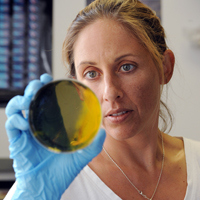
Dr. Noble
Rachel Noble, PhD, Professor of Environmental Sciences and Engineering
Dr. Noble is the Mary and Watts Hill Jr. Distinguished Faculty member at the Institute of Marine Sciences, and she holds joint faculty appointments in the Department of Environmental Sciences and Engineering within Gillings, as well as the Department of Marine Sciences and the Institute for the Environment. Dr Noble’s research program is focused on viral and bacterial pathogens in water, wastewater, stormwater, and food (including shellfish). Dr. Noble is currently working on multiple aspects of COVID-19 research. She is working with a national team to quantify SARS-CoV-2 in wastewater, including rural systems such as package treatment plants and septic systems. Through this collaborative work, it is hoped that the project team can work to identify ways that viral pathogen concentrations in sewage can serve as tracers for community transmission and infections, as well as to identify times where risk exists to the public from failing infrastructure. The second area of research is to advance the technology for quantifying SARS-CoV-2 in a range of different areas including wastewater, stormwater, through developing accurate diagnostic tools, we will be able to demonstrate the disappearance of the pathogens as we hope, over time, transition back to normal activities. A third, very exciting area of her work is to collaborate with faculty in the Carolina Population Center in the area of rural disease transmission to use spatial and demographic information to better predict the dynamics of disease transmission in rural systems.
Dr. Noble in the news:
- Doing COVID-19 Dirty Work (Endeavors)
- Do’s and don’ts for wearing and cleaning masks (Good Morning America)
- Beach and pool water safety from COVID-19 (WITN)
- Professor’s Graphic Simplifies Disinfecting (Coastal Review Online)
- The best ways to clean fabric face masks (Popular Science)
Our Students and Alumni Respond
UNC Gillings School of Global Public Health students and alumni from across disciplines are working tirelessly to put learning into action in the face of a global health crisis.
Read more about what they are doing below:
- Valverde hunts for COVID-19 hotspots (November 16, 2020)
- Adams records experiences from the front lines of the COVID-19 pandemic (November 2, 2020)
- Clement helps coordinate health care and emergency response to COVID-19 across North Carolina (October 12, 2020)
- Mercado builds systems to make care more affordable and confront the COVID-19 pandemic in the Philippines (September 28, 2020)
- Sidibe relies on collaboration, flexibility and speed to direct CDC Foundation’s COVID-19 response (September 18, 2020)
- Students’ winning policy proposal calls for COVID-19 care navigation in NC prisons, jails (September 15, 2020)
- Puertas marshals resources to combat pandemic in 26 countries (July 28, 2020)
- Haddad’s pandemic preparation pays off in Laos (July 14, 2020)
- The Gillings Community Responds to COVID-19: Protection for Rural Farmworkers (June 22, 2020)
- The Gillings Community Responds to COVID-19: Public Health Advocacy Amidst a Pandemic (June 15, 2020)
- The Gillings Community Responds to COVID-19: Global Outreach (June 1, 2020)
- The Gillings Community Responds to COVID-19: Tracking the Spread (May 18, 2020)
- The Gillings Community Responds to COVID-19: Keeping Communities Informed (May 11, 2020)
- The Gillings Community Responds to COVID-19: Voices from the Front Lines (May 4, 2020)
- M.D./Ph.D. candidate Alex Gertner values team approach to vital COVID-19 response effort (Carolina Graduate School Magazine)
- The Untold Story of the Birth of Social Distancing – Story featuring Lisa M. Koonin, DrPH, MN, MPH (April 22, 2020)
- The Gillings Community Responds to COVID-19: Outreach to Vulnerable Communities (April 17, 2020)
- The Gillings Community Responds to COVID-19: Mental Health, Environmental Guidance and Health Education (April 9, 2020)
- A year preparing for crisis: A look inside Laos’s Public Health Emergency Operations Center, with Samuel Haddad ’18 (April 7, 2020)
- The Gillings Community Responds to COVID-19: Equipment, Emergency Response and Water Surveillance (April 3, 2020)
Seminars and Webinars
Jump To: Emergency Preparedeness, Ethics and Equity Series | Building COVID-19 Research Collaborations Webinar Series | Ethics Webinars | Gillings School Coronavirus Seminars | COVID-19 Conversations
Emergency Preparedness, Ethics and Equity Series:
Moderator: Yesenia Merino, PhD, MPH
Panelists: Stefani Baca-Atlas, MSW; Dawna Jones, MEd, MSW; Maria Dykema Erb, MEd
Moderator: Dana Rice, DrPH
Panelists: Lauren Brinkley-Rubinstein, PhD; Bernadette E. Brown, J.D.; Amber Akemi Piatt, MPH
The Emergency Preparedness, Ethics and Equity Series will explore how we can continue to foster inclusive excellence and health equity during the most turbulent of times. Speakers will explore ways to consistently apply culturally relevant, ethical and equitable decision-making so that the most vulnerable among us are not left further disenfranchised post-COVID-19.
Drs. Turpin and Brown will present an overview of current research on environmental transmission and surveillance of SARS-CoV-2, the virus that causes COVID-19. Emerging research suggests that the virus can be transmitted through multiple routes, including via aerosols in indoor spaces. They will discuss the important remaining unknowns about environmental transmission, potential for environmental surveillance, and implications for controlling the spread of COVID-19.
SARS-CoV-2 diagnostic and antibody tests are critical for identifying COVID-19 infections, modeling transmission dynamics, estimating mortality rates and guiding policy on reopening efforts. There are many statistical considerations for the use of these tests and the design of studies to estimate the prevalence of COVID-19. Drs. Hudgens and Shook-Sa will discuss challenges faced by ongoing COVID-19 prevalence studies related to study design, test performance and generalizability of results, as well as issues around sampling frame development and adaptive sampling approaches. They also present a specimen pooling model, which may facilitate the rapid scale-up of diagnostic testing.
Speakers: Whitney Robinson, Associate Professor, Department of Epidemiology & Aunchalee Palmquist, Assistant Professor, Department of Maternal and Child Health
Drs. Palmquist and Robinson discuss their intersecting interests in COVID-19 and kids. Dr. Palmiquist focuses on the representation of children as vectors in the perinatal and postnatal periods. Dr. Robinson discusses the epidemiology of SARS-CoV-2 infection in children and implications for public health.
SPEAKERS: Nabarun Dasgupta, Senior Research Scientist, Injury Prevention Research Center & Allison Lazard, Assistant Professor, Hussman School of Journalism and Media
Dr. Nabarun Dasgupta share what recent smartphone mobility data reveal about the social distancing privilege gap. Dr. Allison Lazard presents results of weekly message testing to encourage social distancing during the COVID-19 pandemic. They discuss implications for policy and the development of a rapid response workflow to harness emergent media.
SPEAKERS: Mark Holmes, Professor in the Department of Health Policy and Management & Kim Powers, Associate Professor in the Department of Epidemiology.
Drs. Holmes and Powers share their expertise and experiences in developing rapid-response COVID research.
• Building epidemic models on accelerated timelines
• Standing up a multi-site collaborative of co-investigators who have never met
• Developing and communicating evidence to inform urgent policy decisions
Governments around the globe are exploring how to leverage technology and data analytics to enable effective contact tracing to stem the spread of COVID-19. UNC Kenan-Flagler Business School Professor of Operations Jay Swaminathan hosts a panel of experts to explore how developers, corporations, regulators and consumer advocates are thinking about the impact of integrating this technology in response to the pandemic.
Panelists include IBM Watson IoT VP of Offering Management Stephan Biller; the Heritage Foundations's Center for Technology Policy Director Klon Kitchen; the Future of Privacy Forum CEO Jules Polonetsky and UNC Gillings School of Global Public Health Associate Professor and Carolina Population Center MEASURE Evaluation Project Director Jim Thomas.
A conversation in the Parr Center's Ethics Around the Table (EAT) series, hosted via Zoom on April 3, 2020. Jim Thomas, Associate Professor of Epidemiology at the UNC Gillings School of Global Public Health, discusses the components of ethical pandemic response and demos a forthcoming online "dashboard" of ethical decision-making resources for policy makers, governments, and other officials responding to the COVID-19 outbreak. These resources have developed by the Gillings School of Global Public Health in collaboration with other units and centers at UNC Chapel Hill.
Leading experts from the Department of Epidemiology at the UNC Gillings School of Global Public Health share the latest on new COVID-19 variants, vaccines and vaccine trials, breakthrough treatments, what’s happening in the clinical environment, Centers for Disease Control and Prevention (CDC) perspectives and much more.
Where To Find More Information
More resources to receive the latest information at the University, local, state, national and international level.

